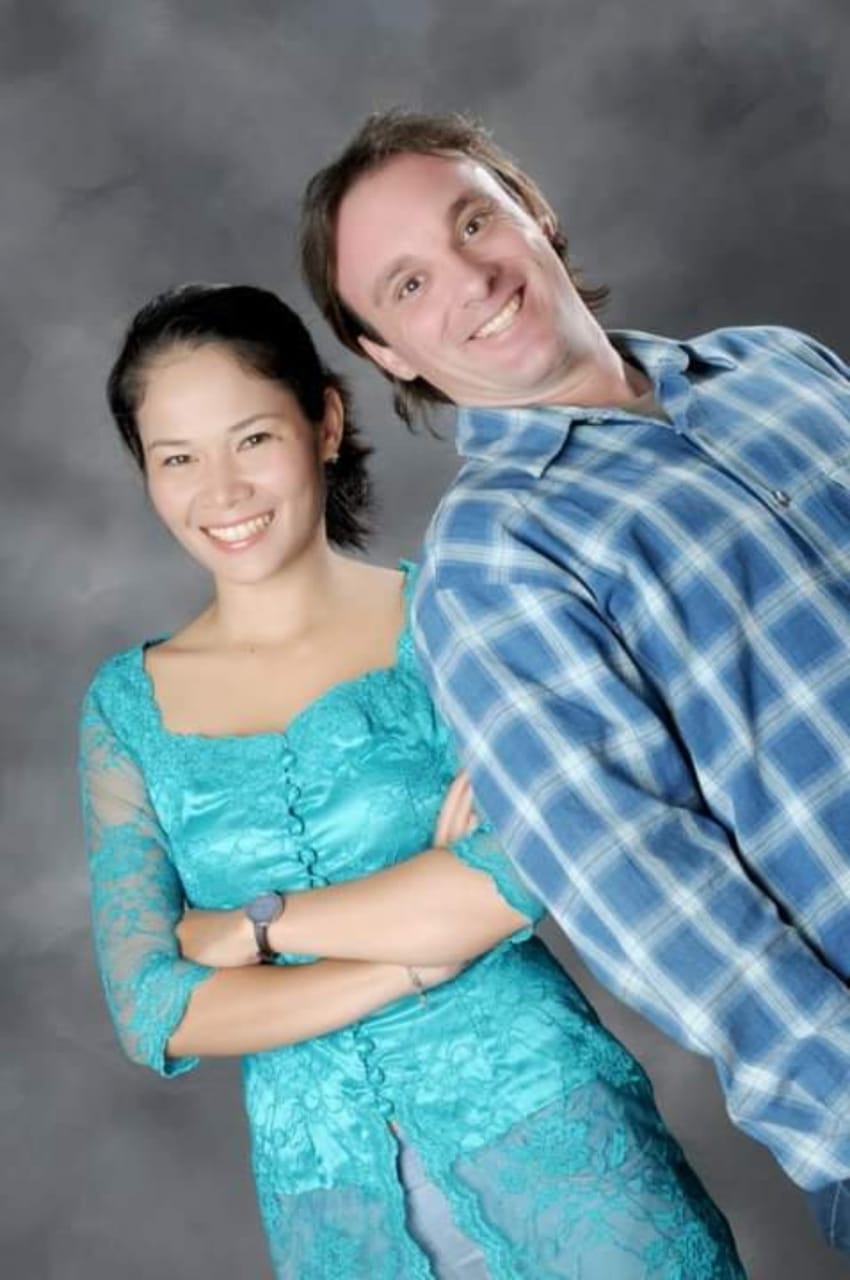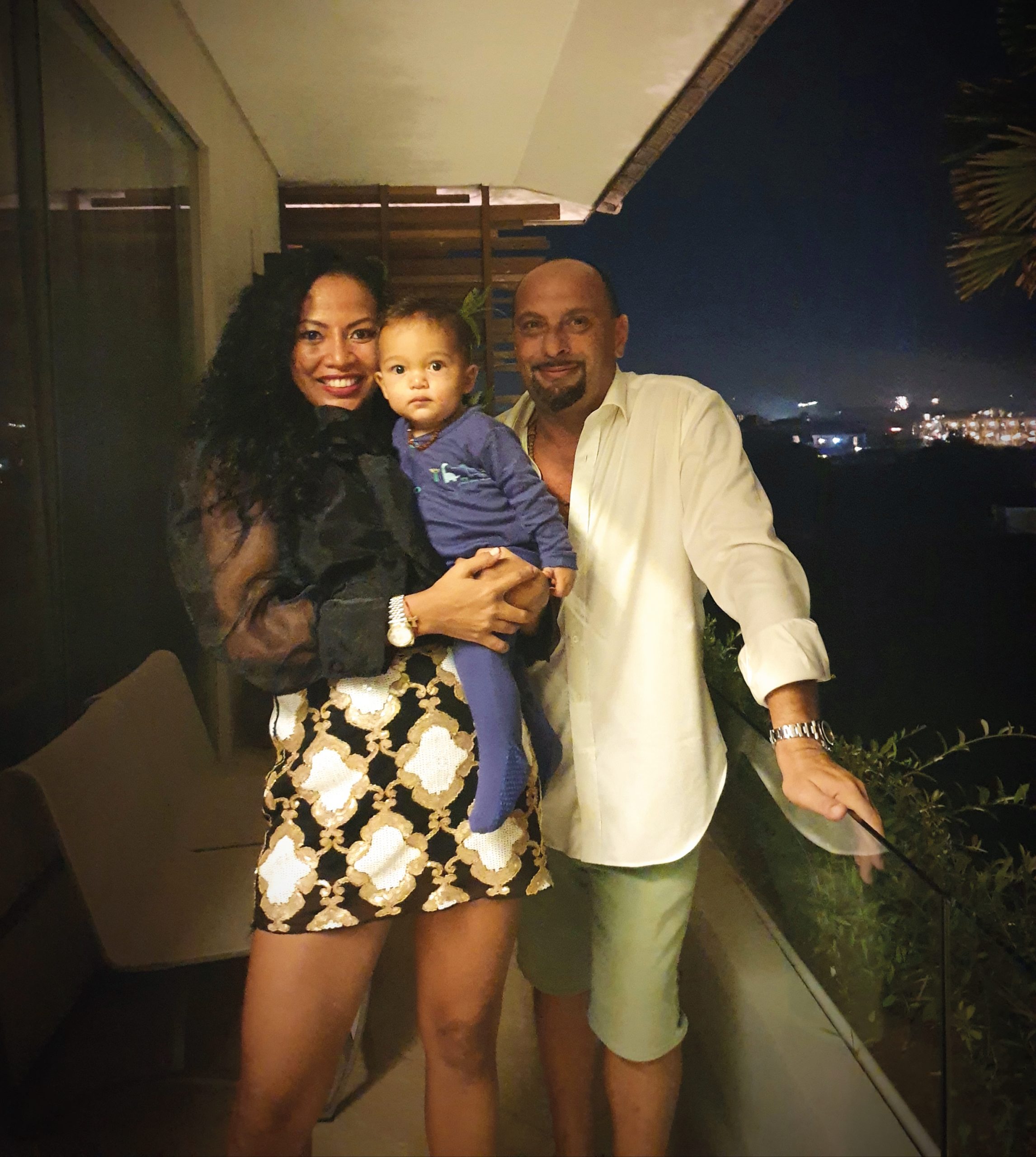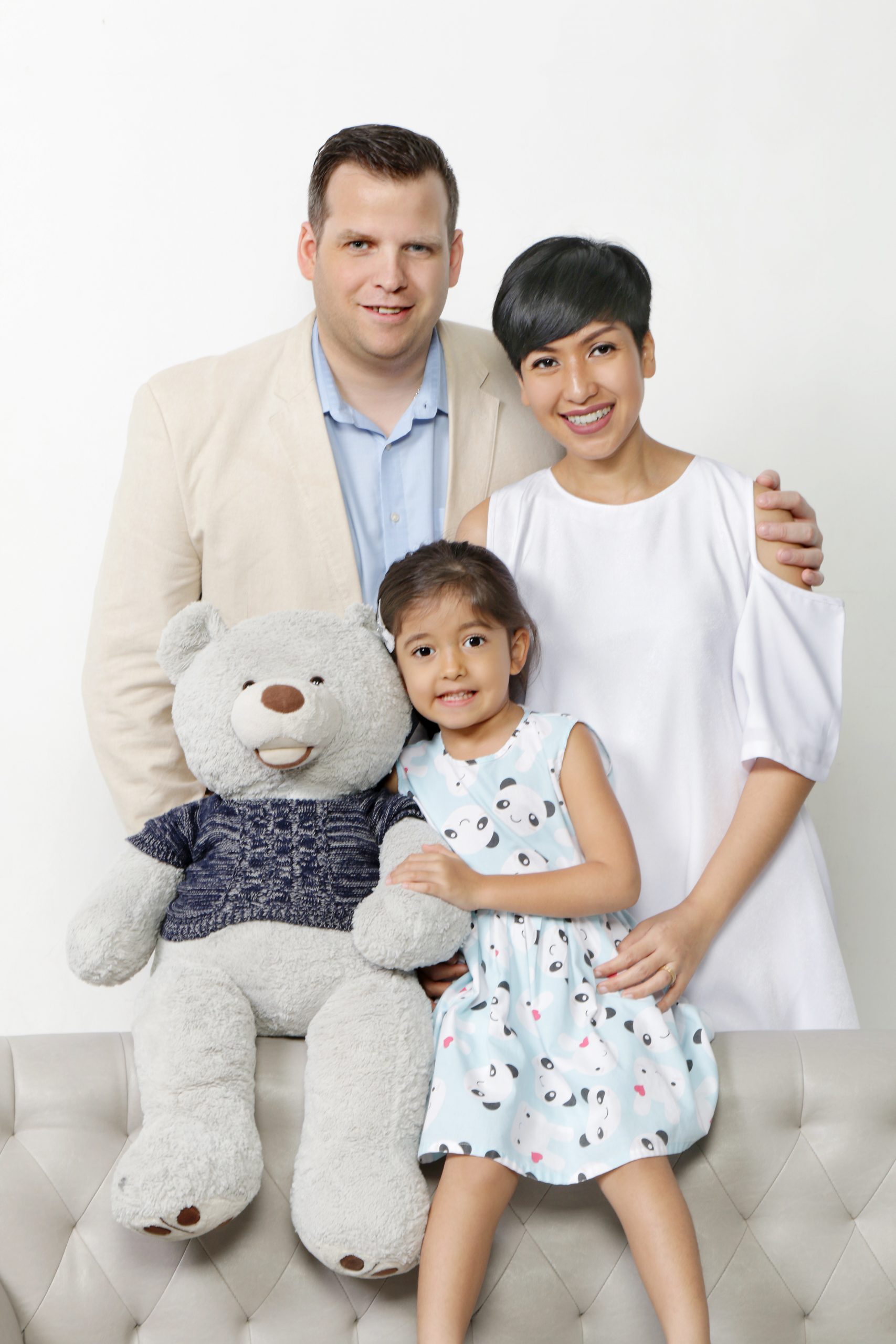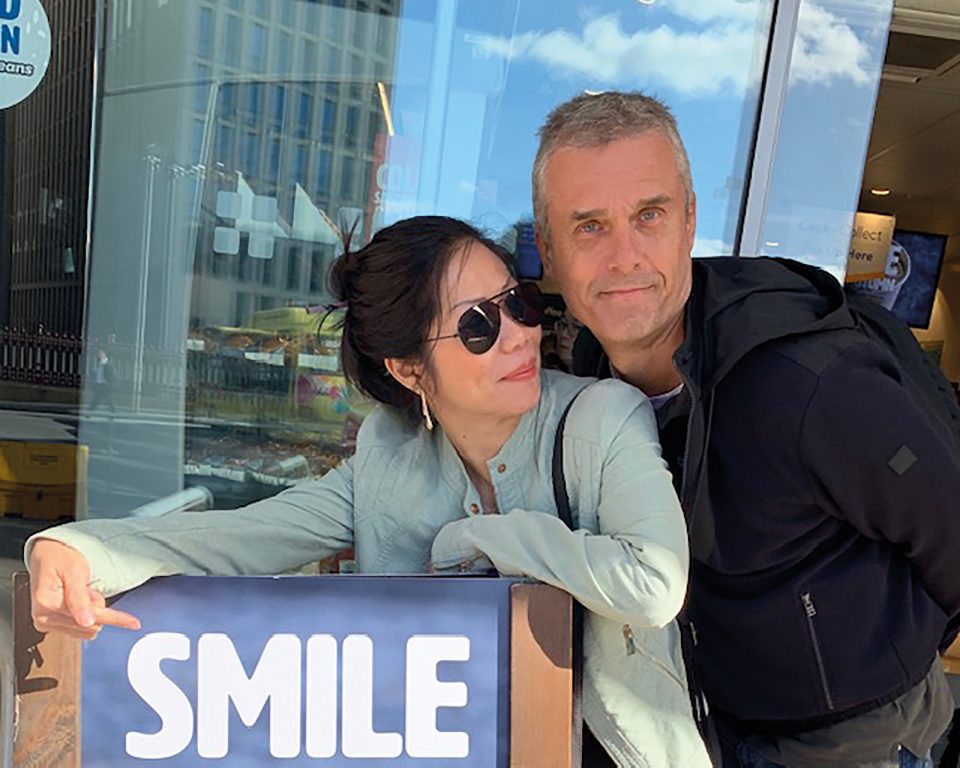Two people from diverse cultural backgrounds uniting in a lifetime partnership isn’t merely a recent trend.
If you think about it, back when Western countries colonised Asia, Africa, North and South America, interracial matrimony was happening – although it was immensely frowned upon. Frankly, interracial couples are unfortunately still not viewed all that favourably to this day. But love is love, and they say love is blind.
In accordance with Indonesian law, a mixed marriage is defined as a marriage between a foreigner and an Indonesian citizen. These couples, however, need to follow perplexing legal procedures to avoid future complications regarding their status – especially in Indonesia with the foreign spouse’s legal status in Indonesia, a place to stay, stay permits such as KITAS or KITAP, and others. Consulting with a professional legal consultant is highly advisable so that mixed marriage couples comply with the Indonesian Law.
I contacted several married and unmarried interracial couples to get further insights on tackling societal judgments relating to the foreigner’s decision to choose Indonesia as their home, stereotypes, and tips for interracial couples – regardless of their relationship status and origins.
Can you please introduce yourselves and tell me how you both met?
Couple Number One:
My name is Cedric (C), I’m French, and I’ve already been living in Indonesia for over ten years. My Indonesian wife Ratih and I are the owners of Java Lagoon, a small hotel and guesthouse near Pangandaran, West Java. Born and raised in Bandung, West Java, Ratih worked in Bali for several years in some luxury beach resorts before heading back to Bandung. We met in 2009 during her beach holiday in the Pangandaran area, while I was still building the hotel.
Couple Number Two:
I’m Emily (E), from Indonesia and my husband is Marc, from the Netherlands. I met Marc back in 1994 when I was working in Surabaya. Marc was a raw material supplier to the company I worked for, and we have been together since then. Ultimately, we got married in November 1995, so we have been together for over 25 years now with two children, aged 22 and 18, who are both studying in the UK. We have also been working together in our textile company.
Couple Number Three:
My name is Severin Huerlimann (SH) and I come from Switzerland. I am presently working in Jakarta with my beautiful Indonesian wife and daughter. We’re currently expecting another baby. My wife and I met in Bali because our friends introduced us. At that time, I was on a business trip to Bali and was supposed to meet my friend to have dinner; however she couldn’t make it, so she asked her college friend (now my wife) to meet me instead at a restaurant in Seminyak. Long story short, that dinner became our first date. We continuously met up every night until I had to go back to the Maldives for work.
Couple Number Four:
My name is Fanni Lauren (FL), an Indonesian and my husband is Valerio Tocci (VT), an Italian. How we met is actually a funny story. I met Valerio through my youngest sister. We met for lunch at a warteg, a local warung makan, in Jalan Petititenget in Seminyak. It was Valerio’s first stay in Bali.
Couple Number Five:
We are a European-Asian couple. I grew up in Southern Europe and have been living in Jakarta for the past six years. Meanwhile, my partner grew up in Sumatra and moved to Jakarta ten years ago. We met in Jakarta and have been together for three years.
Has time spent together created friction between your different cultural backgrounds? If so, how do you deal with that?
Couple Number One:
C: We eventually got married in October 2011. We did have some friction in the beginning, mostly due to our different cultural backgrounds and ways of thinking. But things have turned out better now that we understand each other better. As an expatriate, it is not always easy to understand all the complexities and, generally speaking, the mentality in Indonesia. You need a lot of patience and to realise that everything here is very different. The way of life in Indonesia is pretty slow compared to western countries, especially in the rural areas such as where we live.
Couple Number Two:
E: Marc has lived in Indonesia for nearly 30 years now so he has a vast knowledge about this country, and he has even seen more parts of Indonesia than I have. Being in a mixed marriage naturally exposes me to people from different countries. Learning how foreigners value Indonesia has made me appreciate my country more; from its beauty, the rich soil, and the smiley people too. One big difference I noticed though is the mentality of Indonesians compared to Europeans, in general. In the west, people tend to speak their minds and ask questions, or even let you know when something is deemed not right. Indonesians on the other hand, tend to not show their real opinion – perhaps to avoid confrontation.
Couple Number Three:
SH: We’ve been together since 2013. We were in a long distance relationship for a couple of months then immediately decided to get married. Coming from two different countries, different cultures, different religions, and different personalities has obviously created some friction, especially at the beginning of our marriage. However, we learned to respect each other’s differences and also adapt to the different cultural backgrounds. I believe that made our relationship stronger. Fortunately, our family is also very supportive. We became a very big family, despite the long distance and the occasional language barrier between families.
Couple Number Four:
FL: It wasn’t easy because we’re both from different cultural backgrounds. Slowly, my husband started to understand that our distinct characters get in each other’s way too. For example, I told him that he needed to seek permission from my parents before we got married. He was confused about this. Then we had to do seserahan, in which the soon-to-be groom is expected to buy presents of items deemed to be useful for the soon-to-be bride and her daily life. He asked permission from my parents and implemented the seserahan as according to the Javanese culture; however we threw a wedding reception in the European style so we involved both cultures in our wedding.
Couple Number Five:
There is certainly a considerable difference in cultural backgrounds. Belief systems, priorities, and values of societies have evolved very differently on opposite sides of the globe. This creates friction as much as it makes the relationship interesting. We keep learning new things from each other’s backgrounds; some are easier to relate to than others. It requires a good amount of flexibility and willingness to discuss different points of view. Many times, this is easier said than done. Naturally, discussions on fundamental stuff come up and can last for a while until they are settled. Sometimes, a compromise cannot be found. Tolerance and acceptance of each other’s opinions are required at those points. This makes the relationship special in the only way that we know it will work, if sometimes we let the wrong be right and the right be wrong. One keeps adjusting in a positive way. It is hard work but it’s absolutely worth it.
To the foreigners in these relationships, when and why did you move to Indonesia instead of staying in your home country?
Couple Number One:
C: I travelled around Indonesia to spend my holidays surfing and exploring some remote areas, where I’ve met many locals from different islands with distinctive cultures, and learned a bit of Bahasa Indonesia with them. I simply fell in love with this country! Finally in 2008, with the help of a few local friends from Pangandaran, I got the opportunity to buy a nice piece of land in a small, quiet, rural village near the ocean to create a small hotel and guesthouse – with the hope of earning enough money to happily live in Indonesia. Since then, I got married and welcomed two beautiful daughters who were born in Bandung but hold both French and Indonesian nationalities. Our hotel is running well with Indonesian and some foreign guests staying. We have a very pleasant, simple life here, however I don’t want to compare it with living in France because I think both livelihoods are very different.
Couple Number Two:
E: As much as Marc likes Indonesian food, one thing he cannot get used to is eating cold food like Indonesians do at home, or in a Padang-food restaurant; to most of them, food served on the table must be eaten hot – and with the TV turned off.
Couple Number Three:
SH: I moved to Indonesia in 2014. I didn’t move to Indonesia solely because my wife is Indonesian, but also because I think of this as a beautiful country with a wide spectrum of cultural diversity. The people are also very friendly and I happen to be able to build my career here. Of course, there are also pollution and traffic issues in the big cities like Jakarta, which I didn’t face in my own country. I guess that’s what makes life here more interesting.
Couple Number Four:
VT: In 2011, I came to Indonesia for the first time to follow a project in Canggu, Bali for my Italian client. I had initially planned to move to Miami, the USA. Then, I fell in love with the amazing island that Bali is when I got here. It’s been almost nine years now. I found my love, my partner, my best friend, my wife, and also ten months ago we welcomed our amazing baby boy, Ludovico Maria.
Couple Number Five:
I moved to Indonesia on a work assignment. Coming here was a result of a coincidence at my workplace and it turned out to be for a longer time than initially planned. It was a lucky coincidence in this case.
There’s a stereotype circulating that Asian women in general are more nurturing towards their partner. Is this true?
Couple Number One:
C: Sorry for all the Asian women and in particular Indonesians, but to be honest, I think it is just a stereotype. From my own experience, I don’t think it’s true. In Indonesia, there are plenty of married couples who get divorces, even quite regularly less than a year after getting married. I mean, after living in a rural area and experiencing the “real Indonesian village life” for many years, and from what I see in many villages across the country, I wouldn’t say Indonesian women in general are nurturing from the heart towards their partner; in fact more lean to being money orientated.
Couple Number Two:
E: About the idea of Asian women being more nurturing, I actually disagree. I know many western women who are very nurturing too and many Indonesians who are not. The issue here is that western women treat their partners as equals, as adults, while the Asians often come with a belief that the men are more important than themselves, therefore the latter is expected to serve and obey the former.
Couple Number Three:
SH: Before we got married, my wife couldn’t cook at all, and that’s why at the beginning of our marriage, I’m the one that had to cook. As time went by, she learned how to cook my favourite Swiss dishes because she knows that I sometimes miss food from Switzerland. She has even become a better home chef than me! Simple things like this mean a lot to me and make me appreciate her even more.
When I asked my wife about this stereotype, she only said that: “I think origin or nationality doesn’t really define the level of women being more nurturing towards their partner. It’s more of the willingness to give the best to your partner and family so that we can always maintain the appreciation and love that we have for each other.”
Couple Number Four:
VT: Different cultures mean different mentalities. And yes, western men are dubbed almost “perfect” but they can sometimes get possessive too. In the end, it’s normal and understandable. My wife thinks that true Asian women are calmer and caring, softer as well as sweeter, but it all comes true from the heart.
Couple Number Five:
Asia is a vast continent with thousands of different cultures. Having only interacted with a couple of those, my experience does not qualify me to make general statements about “Asian women.” As anywhere in the world, each person, male or female, is different. As far as Indonesian cultures are concerned, women seem to be traditionally expected to play the role of a housewife. This puts the priority on taking care of children and partner. Modern western cultures have seen a drift away from the classic old-school husband-wife rules in recent decades. Whether this makes any difference on the individual level of nurturing each other in a relationship is something that depends more on the personality rather than on the genetics of each one, I would say.
My partner agrees. Each person has different personalities, mind-set, and culture. But it’s not only an Asian woman who nurtures their partner, every woman will do the same if they love and respect their partner.
Do you have any tips for mixed couples, regardless if they’re still dating or already married?
Couple Number One:
C: Do not get married too quickly; take your time and try to get to know each other as well as the family – the parents in particular – better first. Don’t forget to be open-minded and tolerant of each other’s cultures. Lastly, accept the fact that you may have a different religion though both religions need to be respected, otherwise it will not work.
Couple Number Two:
E: People in a relationship must take time to talk to each other every day; sharing their daily lives through good communication so that you both will not be estranged from one another. Whether it is done during dinner or a short walk, this is best done with the phones or other gadgets out of sight.
Couple Number Three:
SH: Keep being open-minded to adjust and adapt to each other’s cultures and to always have an honest communication that explains why each person might behave differently. Be patient too, it’s not just a union of two different “heads” in a marriage, but its two different “heads” from different countries and cultures uniting. So stay strong and I’m sure you’ll be fine!
Couple Number Four:
VT: Always be yourself and enjoy the life in Indonesia – you’ll never get to experience anything like this anywhere else in the world.
Couple Number Five:
In every challenge lies opportunity. The level of happiness during time spent together should serve as an indicator for whether it is worth it.




